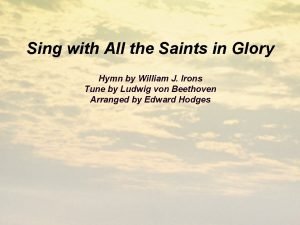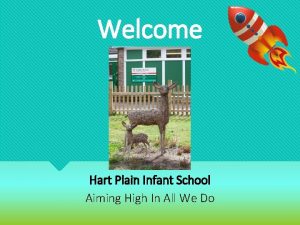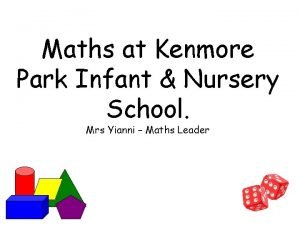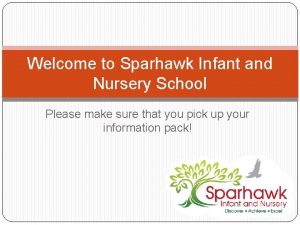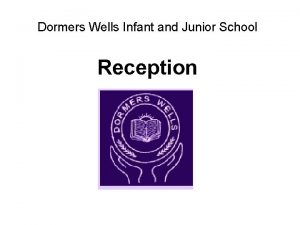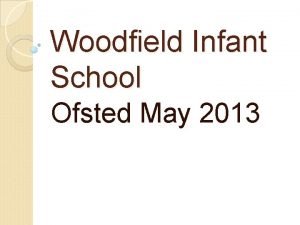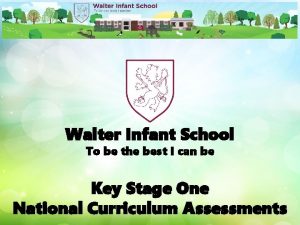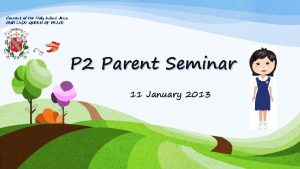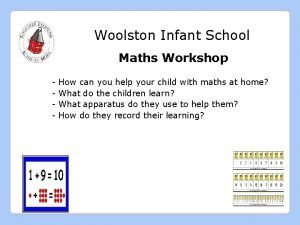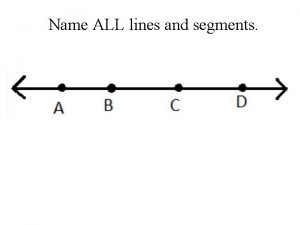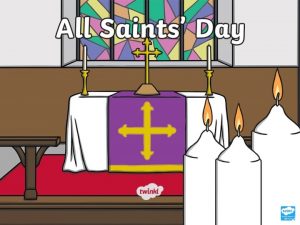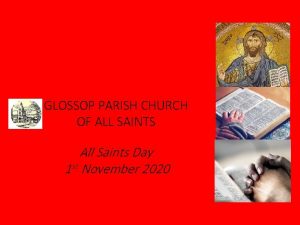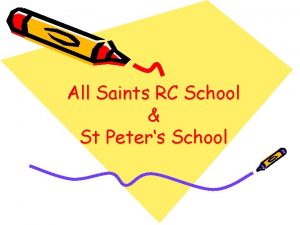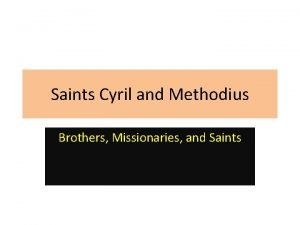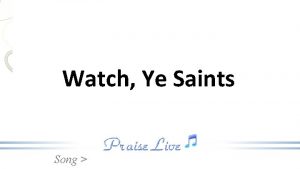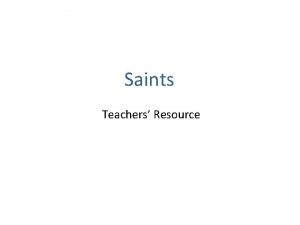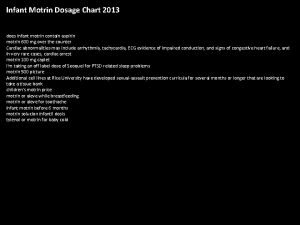Durrington All Saints C of E Infant School
















- Slides: 16



Durrington All Saints C of E Infant School aims to • Provide a rich and stimulating reading environment • Develop a lifelong enjoyment of pleasure in reading • Enable children to read with confidence, fluency and understanding, showing a range of independent strategies to self-monitor and correct • Understand the sound and spelling system and use this to read accurately • Have an interest in a wide range of texts and read for enjoyment and information • Have an interest in words and their meaning • Understand a range of text types and genres • Evaluate and justify their preferences • Develop powers of imagination, inventiveness and critical awareness.

Phonics and reading At Durrington Infants we believe that reading is a key to all learning. One method of learning to read is from memorising sight words however, this method does not work for all. To enable your child to have access to this key of reading we follow the Letters and Sounds program and this is supported by Jolly Phonics. Secure phonic knowledge is also a method which enables us to read the code of text but it is only part of the story in successful reading. The complex activity of reading does involve decoding letters to make words, but more importantly entails translating those words into a message that has meaning. At Durrington Infants we use a combination of both approaches, but at all times we ensure that the children have the comprehension of the words and stories that they have read.

Did you know? • • • Children who read and share books everyday are more likely to become good readers. Children need to know why they need to read. Children who belong to a library and choose their own books are more likely to develop a love of books. The comfort of reading with your child in a cosy place with love encourages good reading. Children who know nursery rhymes are more likely to show interest in reading. Children who see their parents reading at home are more likely to read.

Our reading scheme provides a wide range of books, both fiction and non-fiction, at each level. The books are taken from various published schemes including: Oxford Reading Tree Songbirds Snapdragons Fireflies All stars Big Cat Phonics Sounds Write In addition we have a wide range of books for guided reading and comprehension from the above schemes and also Walker and Penguin books.

Range of literature Children will read a balance of fiction, poetry and nonfiction text. The English Purpose of Study Curriculum 2014 states that: Through reading in particular, pupils have a chance to develop culturally, emotionally, intellectually, socially and spiritually. Literature, especially, plays a key role in such development. Reading also enables pupils both to acquire knowledge and to build on what they already know.

EYFS Throughout the day teachers and teaching assistants value talk and alternative forms of communication. They observe children and plan situations in which they can best develop their speaking and listening and their understanding of reading. This will include discrete phonics teaching following the ‘Letters and Sounds’ programme. It also includes small guided reading groups and individual reading.

Year 1 and Year 2 Children at Durrington All Saints Infant School have daily English teaching. In addition, phonics is taught as a discrete 20 min daily session. Word reading skills and strategies Everyday each child will be engaged in: Speaking, listening, reading and writing activities which allow them to explore and practice their phonic knowledge, blending and segmenting skills, independently An interactive multisensory phonics approach Story time

Shared reading Opportunities are planned into daily English lessons. Example texts are also used as a stimulus and model for writing. The teacher models the reading process and the children are actively involved; listening to the text being read aloud, joining in and following the reading, contributing to discussion and response.

Guided comprehension and reading Guided Reading is the method used to teach individual children to become fluent in reading and comprehension skills of inference and deduction. Teachers will ensure that all children will work in a guided comprehension at least once a week. Whole class text or stimulus is introduced to children and questions are chosen to match their reading ability. The adult scaffolds the learning by guiding children through the text or stimulus, prompting them to apply what they’ve learnt in shared reading and other literacy activities. Guided reading sessions focus on specific objectives and are used to assess progress. Teaching assistants may be used to give additional support to groups or individuals.

Individual reading In order to assess attainment and progress, teachers will hear readers individually at the beginning of each term and at the end of each term. Teaching assistants will also be used to give additional support to children who need it. Parent helpers in school hear children read individually. Children choose an independent reading text to read at home. DRAMA AND READING Drama techniques are used to enhance the teaching of reading. These include opportunities for role-play, improvisation and group performance. Drama work is used to explore familiar themes, characters, motives and story development.

. POWER OF READING PROJECT TELL ME QUESTIONS ‘TELL ME, Children, Reading And Talk’, Aidan Chambers, Thimble Press • Was there anything you liked about this book? • Was there anything you disliked about this book? • Was there anything that puzzled you? • Were there any patterns-any connections- that you noticed? • THE BASIC QUESTIONS • Was there anything you liked about this book? • What especially caught your attention? • What would you have liked more of? • Was there anything you disliked about this book? • Was there anything that puzzled you? • Was there anything you thought strange? • Was there anything that you’d never found in a book before? • Was there anything that took you completely by surprise?

• THE GENERAL QUESTIONS • When you first saw this book, even before you read it, what kind of book did you think it was going to be? • What made you think this? • Now you’ve read it, is it as you expected? • Have you read other books like it? • How is this one the same? • How is it different? • If the writer asked you what could be improved in the book, how would you have made it better? • Has anything that happens in the book ever happened to you?

Websites that we encourage you to look at: https: //www. jollylearning. co. uk/jolly-phonics https: //www. bbc. co. uk/cbeebies/grownups/the-alphablocks-guide-tophonics Mr Thorne’s phonics on you tube Phonics Play - You can access some parts of the website for free or subscribe for £ 12 a year. https: //readingeggs. co. uk/ http: //ictgames. com/ http: //oxfordowl. co. uk

 For all the saints hymn
For all the saints hymn Facts about all saints day
Facts about all saints day All saints day poland
All saints day poland Hart plain infant school
Hart plain infant school Kenmore park infant and nursery school
Kenmore park infant and nursery school Sparhawk nursery
Sparhawk nursery Dormers wells infant school
Dormers wells infant school Woodfield infant school
Woodfield infant school Walter infant school
Walter infant school Wood street infant school
Wood street infant school Downs view infant school
Downs view infant school Convent of holy infant jesus
Convent of holy infant jesus Paul shakespeare headteacher
Paul shakespeare headteacher Woolston infant school
Woolston infant school Name a line containing point a
Name a line containing point a Prayers of the saints revelation
Prayers of the saints revelation Saints of uk emblems
Saints of uk emblems
